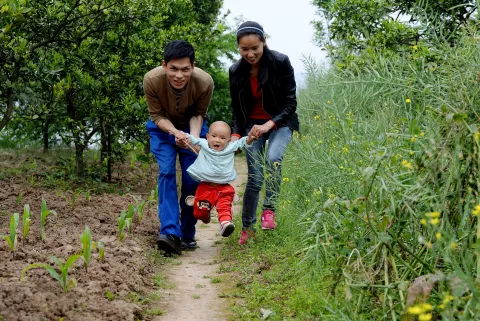Eat, play, love
How proper nutrition, play and care can have a big impact on your child’s brain development.
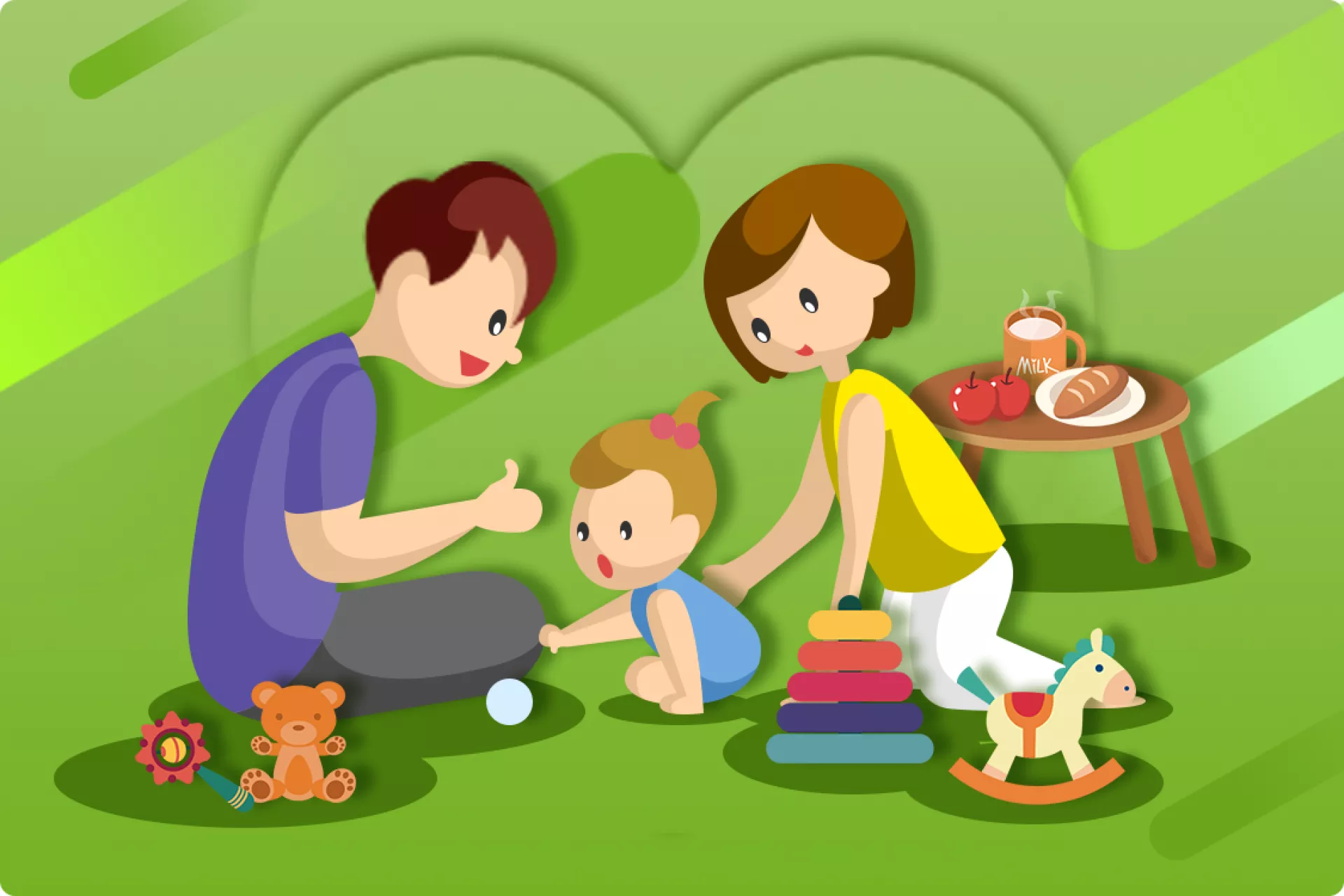
- Available in:
- 中文
- English
The first two to three years of life have a profound effect on children’s future – on their health, their happiness, their ability to learn in school, and even the amount of money they can earn as adults.
Studies on brain development have shown that the human brain is a made up of a complex interplay of neural connections that begins before birth and continues into adulthood. During a child’s first years, your baby's brain cells have the potential to make more than one million new connections every second. This means that a three-year-old’s brain is twice as active as an adult’s.
A child’s early years of life are crucial because how that child’s brain develops has an impact on the child's mental and physical health, cognitive abilities, language, and social skills. This is referred to as early childhood development or ECD. Experts have determined that as the brain-building process continues, the neural connections within a child’s brain are shaped not just by their genes but also by what goes on around them — both good and bad. This process – a combination of nature and nurture – establishes the foundation of a child’s future.
What factors help brain development?
Three things are needed to jumpstart babies’ brain development: nutrition, stimulation, and protection. Simply put, babies need three things: eat, play, love. Let’s look at what the science says about each of these factors.
Nutrition and brain development
Adequate nutrition is one of the most important factors linked to the growth and intellectual development of children. For babies, the early initiation of breastfeeding is a source of important nutrition and protection against disease. Because global health authorities agree that breastfeeding provides the best possible nutrition at the start of life—and is unquestionably better over than powdered milk formula—parents are advised to exclusively breastfeed their baby for their first six months and continue up to two years of age.
For infants who do not get enough nutrients, nutritional deficiencies may occur; including severe acute malnutrition, chronic undernutrition, iron deficiency, and iodine deficiency—all of which can impair brain development. For young children, not having enough nutrients may mean that they do not have the energy to explore their environment or engage with other people. This means that they miss out on the stimulation they need to develop their cognitive skills.
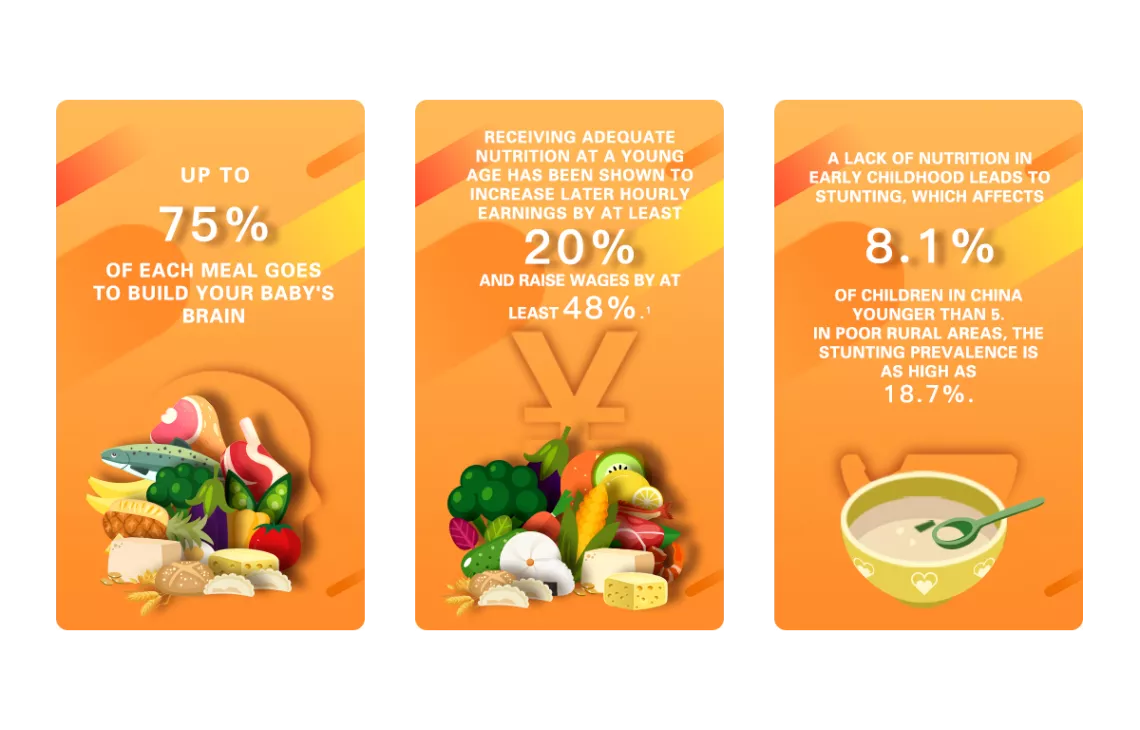
Stimulation and brain development
Whether in the form of talk or play, children need stimulation to help develop the skills they need in life.
Parents with babies are encouraged to talk to their child by responding whenever they cry, smile or coo. This shows the child that the parents are there for them and helps build the brain’s social and communication skills. As the child becomes a toddler, parents should provide positive talk, which has been shown to help control impulses when the child grows older, or engage their kids by asking questions, which is usually more effective than telling him or her what to do.
Parents should also encourage interactive play, which helps a child develop the skills they need to learn, and pretend play, which has been linked to having a more positive outlook and better coping skills. Providing children with toys like building blocks is also helpful as playing with items such as these has been associated with higher language scores.2
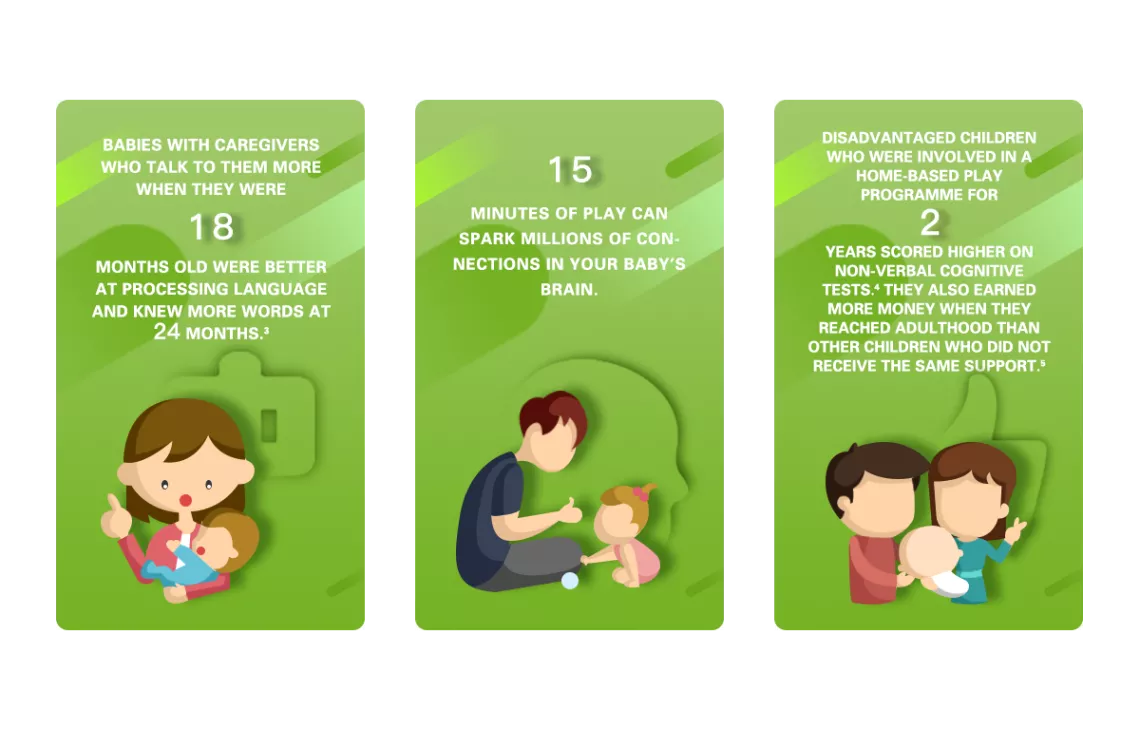
Protection and brain development
Stress is a normal part of everyday life and affects everyone, from children to adults. When stress is intense, frequent, or prolonged, it can affect the way a baby’s brain develops, possibly leading to lifelong impairment – such as difficulties in learning and managing emotions – and even disease in adulthood. Showering your baby with love, therefore, means eliminating or minimizing their exposure to the kinds of stress that can turn toxic; this includes physical and emotional abuse, chronic neglect and the accumulated effects of poverty.
On the other hand, when children are surrounded by engaged and supportive caregivers, they gain a buffer of protection that helps them cope in times of stress. As a result, positive stress situations such as meeting new people, starting the first day of school, or solving simple problems, become a healthy part of development.
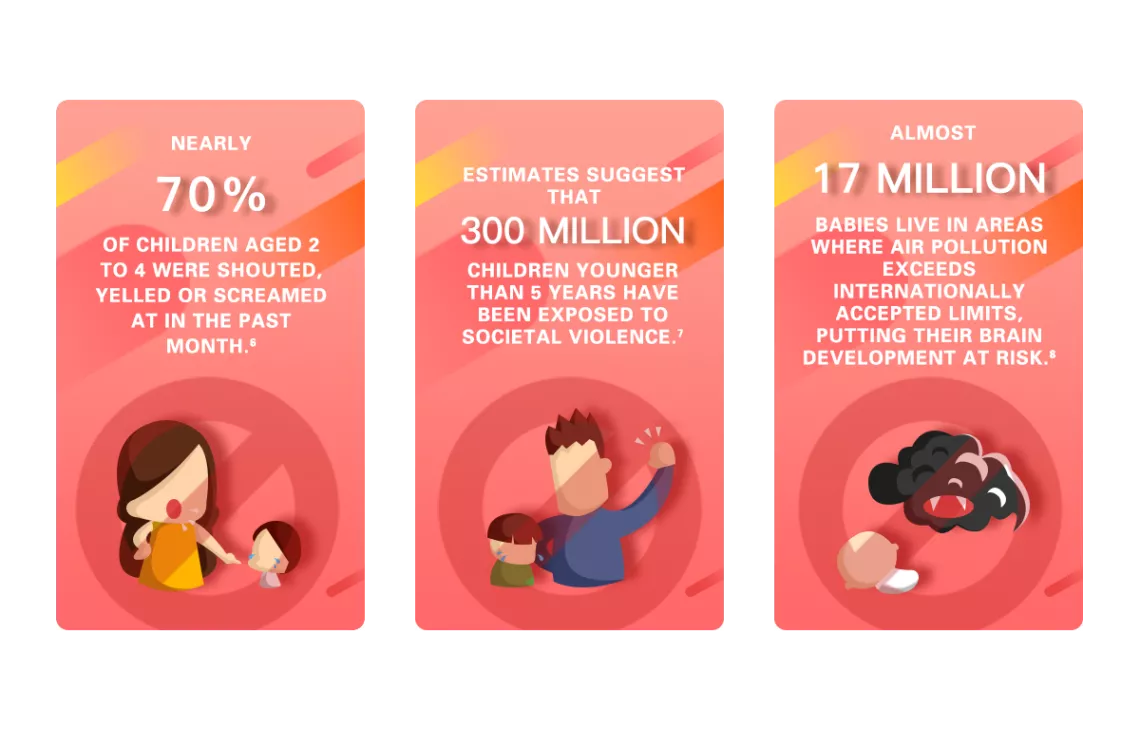
[1] International Food Policy Research Institute, Global Nutrition Report 2014: Actions and Accountability to Accelerate the World’s Progress on Nutrition, International Food Policy Research Institute, Washington, D.C., 2014, pg. 8. https://www.ifpri.org/publication/global-nutrition-report-2014-actions-and-accountability-accelerate-worlds-progress
[2] http://www.child-encyclopedia.com/sites/default/files/docs/coups- oeil/child-s-play-info.pdf and https://jamanetwork.com/journals/jamapediatrics/fullarticle/571274
[3] Weisleder, Adriana, and Anne Fernald, ‘Talking to Children Matters: Early Language Experience Strengthens Processing and Builds Vocabulary,’ Psychological Science vol. 24, no. 11, pp. 2143–52, cited in The World Bank, World Development Report 2015: Mind, Society, and Behavior, p. 102.
[4] Tanner, Jeffery C., and Tara Candland and Whitney S. Odden, ‘Later Impacts of Early Childhood Interventions: A systematic review’, Independent Evaluation Group Working Paper 2015/3, World Bank Group, Washington, D.C., 2015, p. 34.
[5] Gertler, Paul, et al., ‘Labor Market Returns to an Early Childhood Stimulation Intervention in Jamaica’, Science, vol. 344 no. 6187, pp. 998–1001, The World Bank, World Development Report 2015: Mind, Society, and Behavior, the World Bank, p. 107.
[6] United Nations Children’s Fund, Early Childhood Development: A statistical snapshot – Building Better Brains and Sustainable Outcomes for Children, UNICEF, New York, 23 September 2014, p. 6. https://www.unicef.org/earlychildhood/files/ECD_Brochure_FINAL_LR.pdf
[7] Walker, Susan P., et al., ‘Inequality in early childhood: risk and protective factors for early child development’ The Lancet, vol. 378 no. 9799, October 2011, pp. 1325–1338.
[8] United Nations Children’s Fund, Danger in the Air: How air pollution can affect brain development in young children, UNICEF, New York, December 2017, p. 4. https://www.unicef.org/environment/files/Danger_in_the_Air.pdf>.


